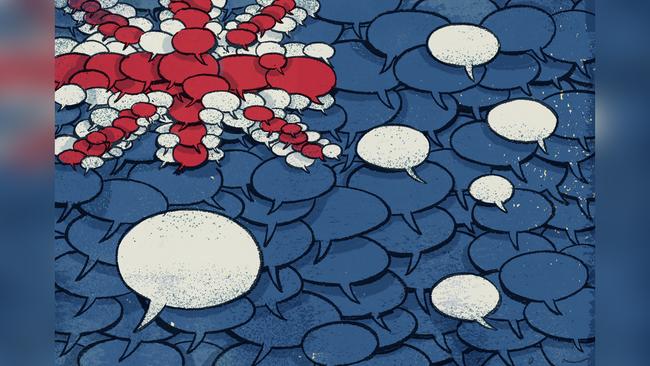
We have had our extremist flirtations. We have a tiny extreme right, built around racism and madness, and a somewhat larger extreme left, built around confected ideological hatreds and madness. Both are almost entirely derivative from the US and Britain.
At a time when left and right extremism are strong in the US and parts of Europe, they are not doing nearly so well in Australia. We are not guaranteed against plagues of political madness, but Australians do have significant herd immunity against extremism.
This emerges from our culture and history. Here are seven factors for sanity:
One, Celtic scepticism. In Australia, the old saying goes, the English made the laws, the Scots made the money, and the Irish made the jokes. Convicts and Irishmen were always sceptical of British authority, without being in furious opposition to it. The Australian distrust of “ratbaggery”, which is a slang term for pretentious, self-regarding, highfalutin nonsense, has never been more needed than now.
Two, compulsory voting. Its proponents, and I am one, often say it pushes our politics to the centre. Parties must pitch for the mainstream. But I think it has an even more important cultural role. It forces every adult to have a minimum involvement in the political system, in the best way a citizen can, by voting in a peaceful election.

For democracy to thrive it needs the consent of the apathetic, for the politically apathetic to remain politically apathetic.
Many wise people have more important things in their lives than politics. The political system needs their human wisdom. You never want politics dominated entirely by enthusiasts, the polite word for fanatics. The countries with the most passionate politics are the most dysfunctional societies. Have you ever heard of the Swiss head of government? No? Yet Switzerland is a notoriously peaceful, well-functioning society. Drama is the enemy of sanity.
Very few countries have compulsory voting. It is an Australian innovation of genius. Extremism flourishes when it discredits the regular institutions of democracy. Compulsory voting invests Australian political institutions with almost ineradicable legitimacy.
Three, our security situation constantly calls us back to common sense. We are not under imminent threat, but we were in World War II and that experience figures in our national memory. More than that, we are aware that we live next door to the world’s most populous Muslim nation and in a region increasingly challenged by a coercive, communist, rising superpower. We understand that our national security depends on the US alliance. That means the extreme left view that the US is a systemically racist and evil power at the root of global exploitation et cetera (a version of which is also often held on the extreme right) has a serious job battling against Australians’ strategic instincts and common sense.
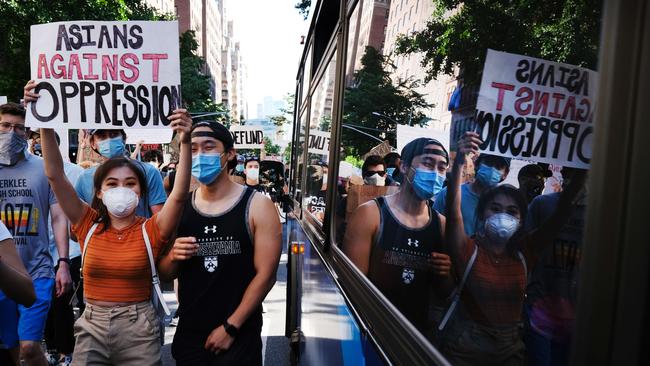
Four, our immigration system and experience is a tremendous shield against mad radicalism. Australia is the most stable country in the world politically and we are generally the OECD country with the highest or second-highest immigration rate. Rich countries with big immigration programs are much more stable, and wealthier, than those without.
Immigrants, like all human beings, can be good or bad. With Australia’s racially non-discriminatory but skills-focused program we have a superb immigration record. Our immigrants strengthen our stability. Most are immune to extremism.
Until the virus temporarily shut churches, most Sundays I attended one or other Catholic church. And in researching a book about Christianity a couple of years ago, I attended many Pentecostal, Evangelical and other Christian church services. In all of them I saw a disproportionately large number of Asian immigrants. I am sure immigrants, particularly Asian immigrants, are more religious and churchgoing than the Australian nation overall.
They refresh our religious institutions and ethical practice. This is akin to the paradoxical insight of GK Chesterton. If you want a fence pole to stay as it is, you need to keep repainting it year after year. Otherwise it will fade and decay.
Our immigrants are much more socially conservative than the woke ideological orthodoxies of Australian academe and much of our media. When my sons were at high school, we sent them to a local Korean maths coaching college after the school day finished. It was full of Asian kids whose parents were determined that they would study hard and succeed.
Such people are too busy, and too grounded, for ideological madness. Not only that, coming from Asia they understand the priceless gifts of democracy and stability.
As well, of course, our immigrant infusion gives our economy energy and means we do not confront the corrosive, divisive drama of becoming, as a society, elderly and declining. Instead, we remain younger than most advanced nations. Immigrants, especially Asian immigrants, favour above all policies which produce economic growth, more jobs and social stability.
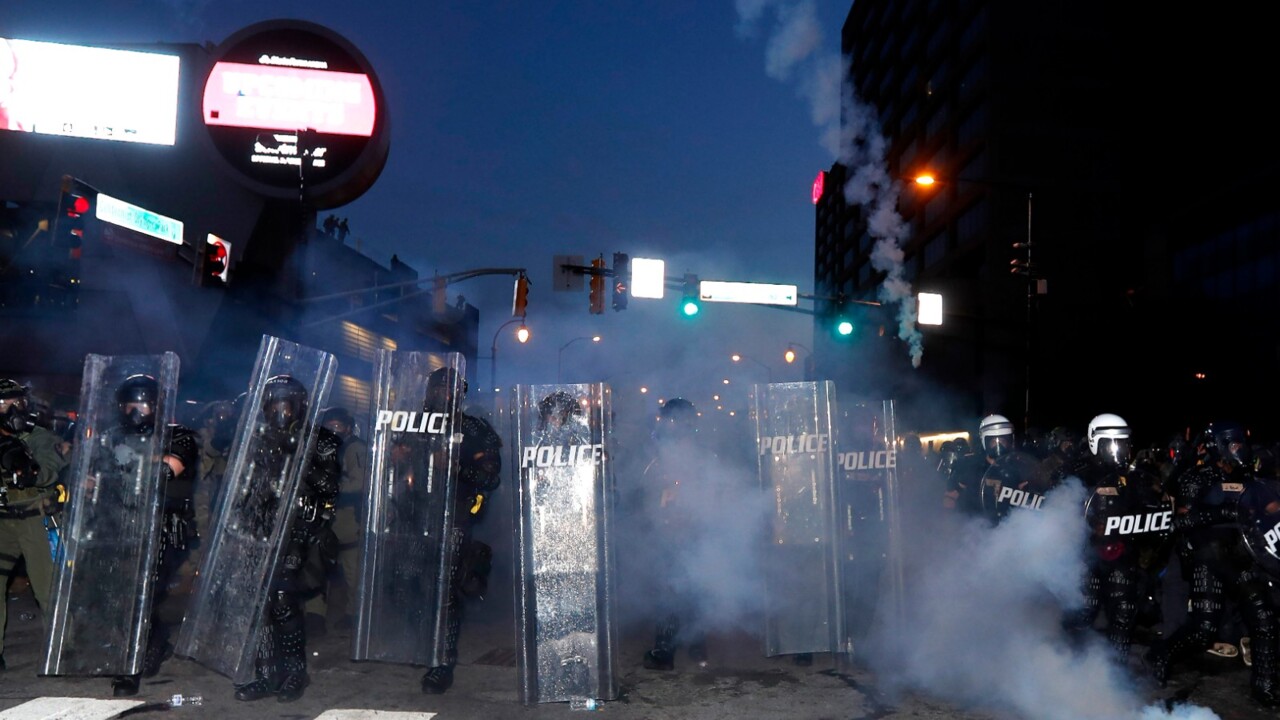
Immigration in Australia is pro-economy, pro-nation-building, pro-religion and pro-social stability. It is a conservative cause. The only prime minister who temporarily killed immigration in this country was our most radical, and by some distance our worst, Gough Whitlam. Some conservatives don’t understand all this, but they benefit from immigration nonetheless.
Five, our Asian environment generally forces us back to common sense. Asian nations mostly do not pool their sovereignty, or hate the nation state, or engage in wild economy-destroying climate change gestures. They are utterly uninterested in the Marxoid identity politics which animates The New York Times and The Guardian in their least lucid moments. They are instead dogmatic in their rejection of dogma. Australian politicians who spend time in regional capitals such as Singapore, Tokyo and Seoul meet leaders whose outlook is practical and blessedly free of the political extremisms roiling Western nations.
Six, despite our being subject to ideological hegemony from the east and west coasts of the US, London and Paris, and all the running sewers of the internet, there are long, serious traditions of intellectual formation in Australia which provide a different world view.
Catholic and Evangelical Christians, and more recently Pentecostals, as well as other Christian denominations, make a huge, independent educational effort in Australia and have done so for a long time. These efforts are not immune to the craziness of the times, but they start from a much more stable worldview.
And finally, never ignore our good weather. When extremists come calling, most Australians answer: I’d rather be at the beach.
Lucky Country indeed.



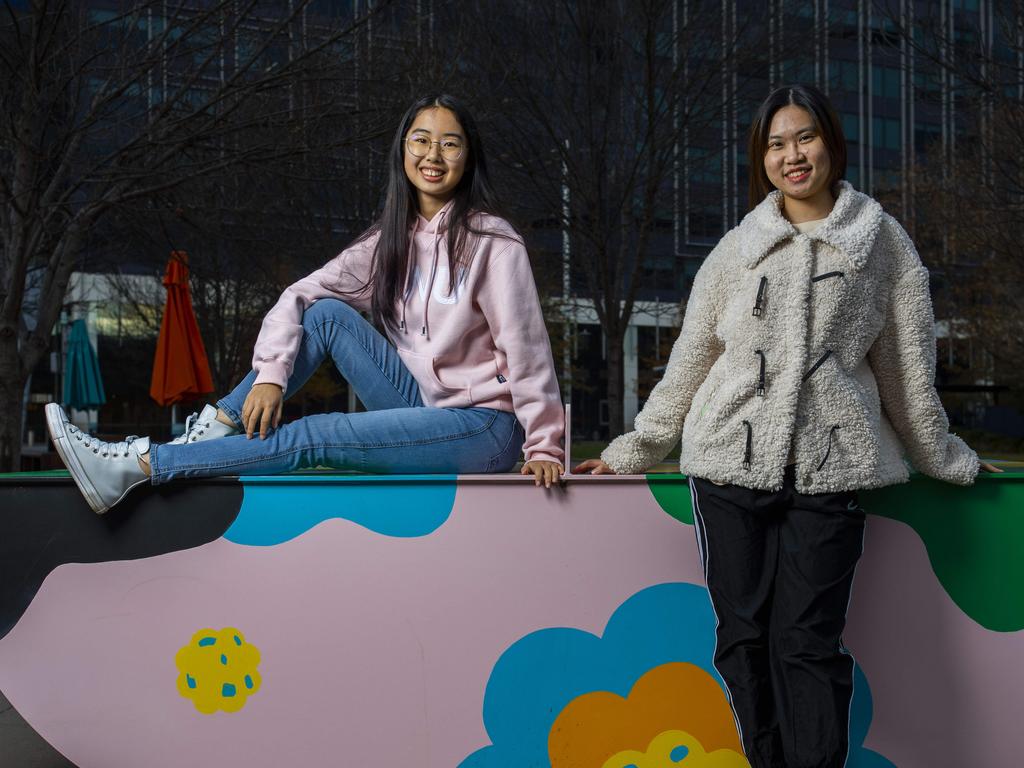
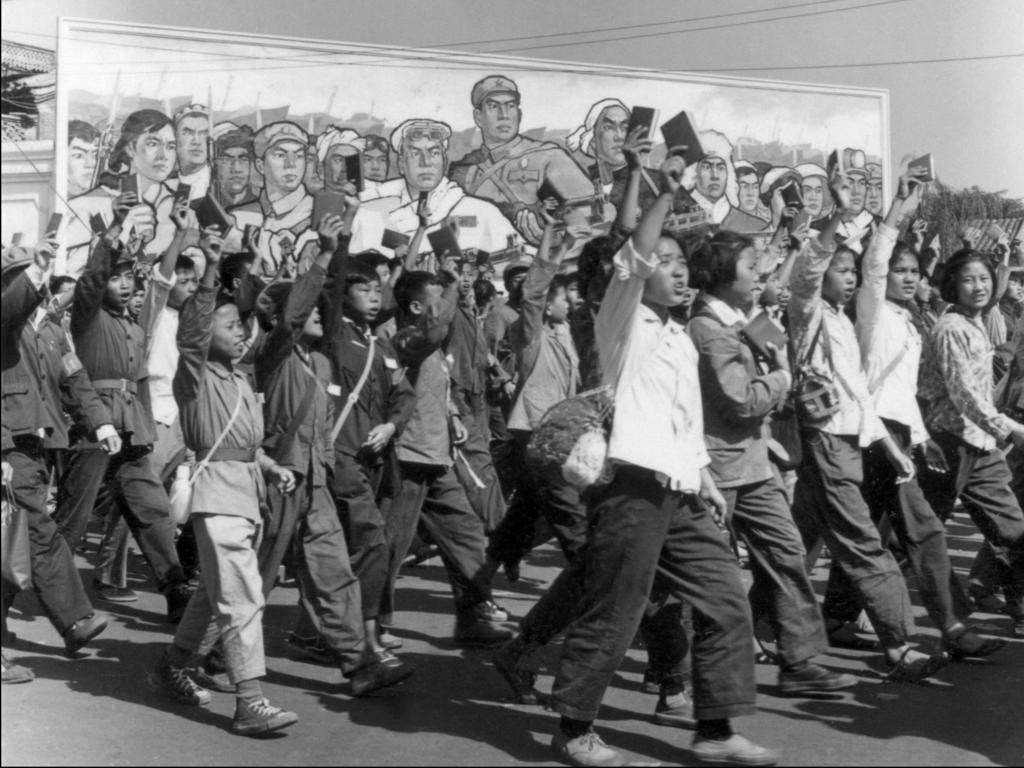
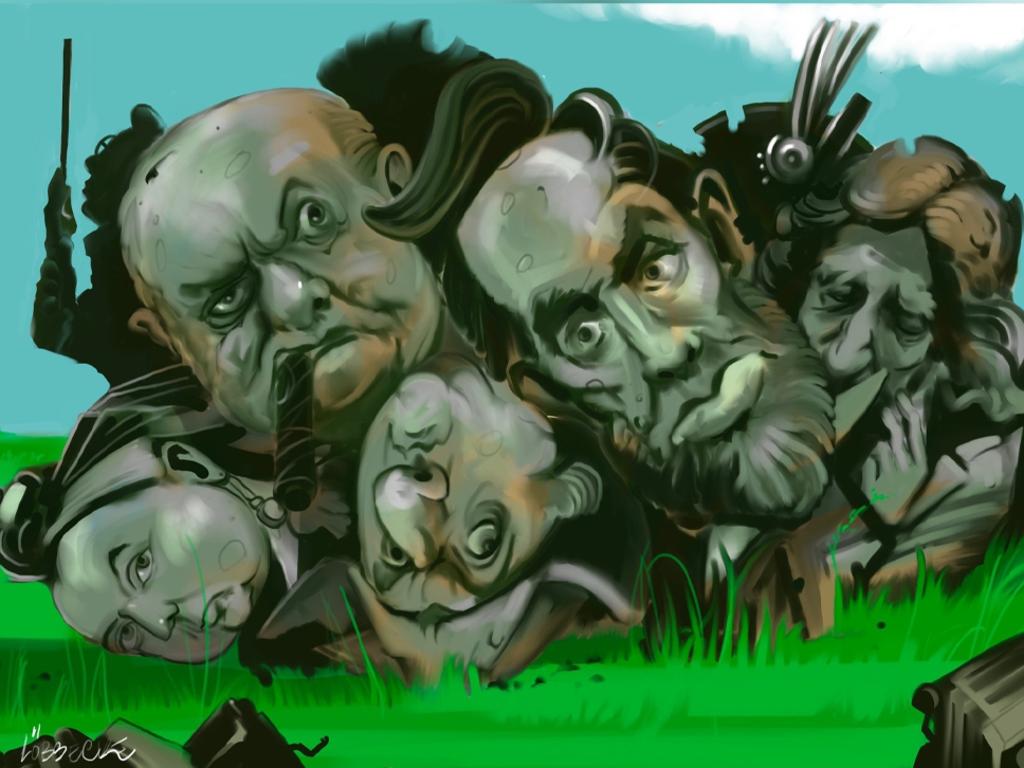
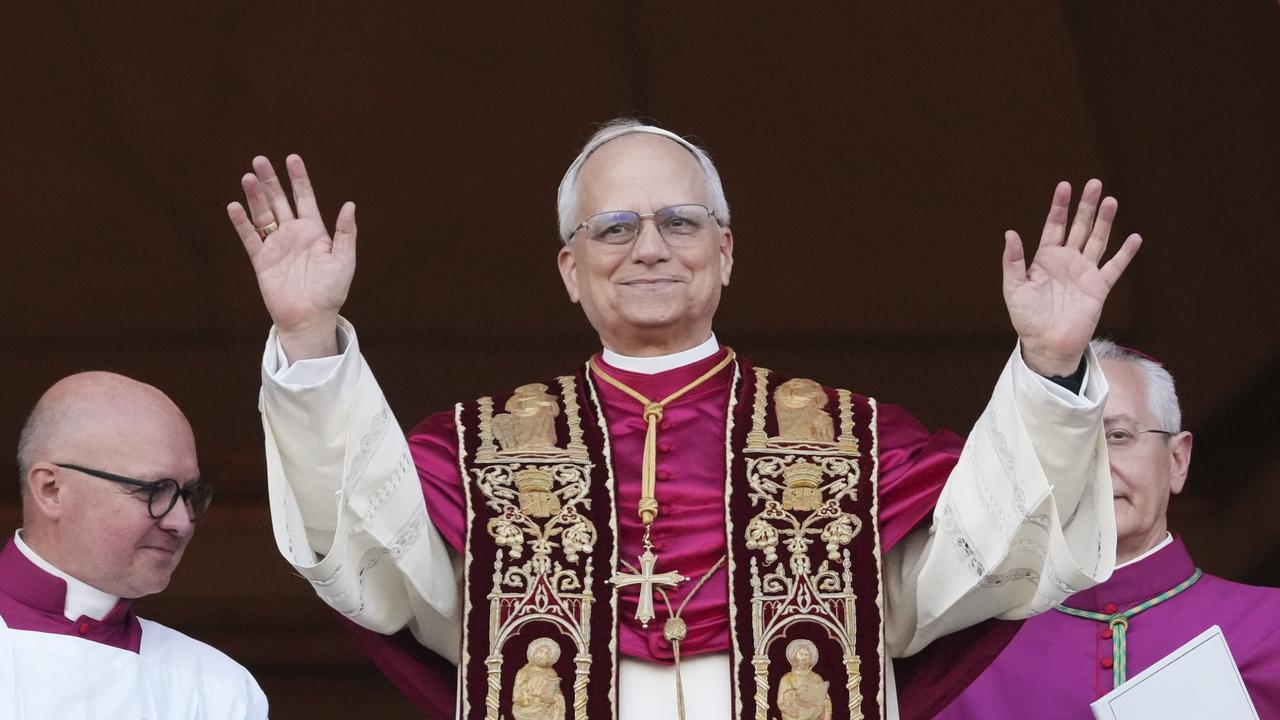

Australians don’t do political extremism much. Whatever criticisms we rightly make of ourselves, we are widely and rightly seen internationally as a well-governed, fair-minded, sensible people.